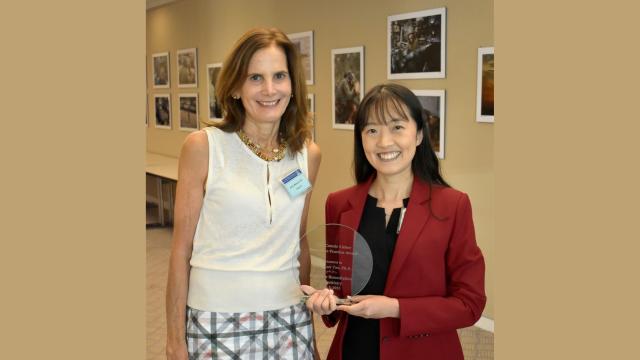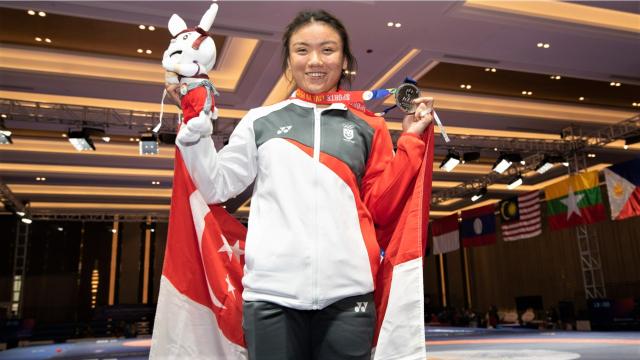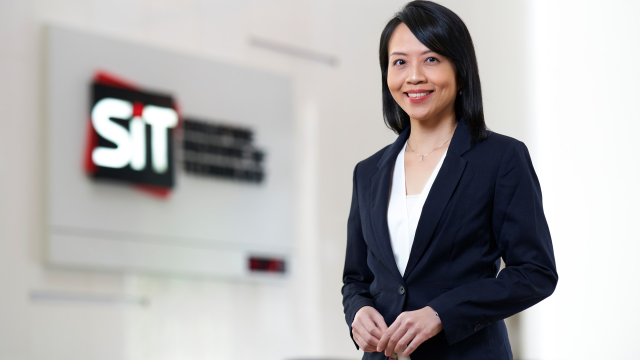One of the highlights of SIT’s Mechanical Engineering programme is the Overseas Immersion Programme (OIP) at the University of Glasgow. However, the OIP is just one component that enables students in the programme to achieve greater heights. At a recent talk at SIT’s virtual open house, Associate Professor Alfred Tan explained why.
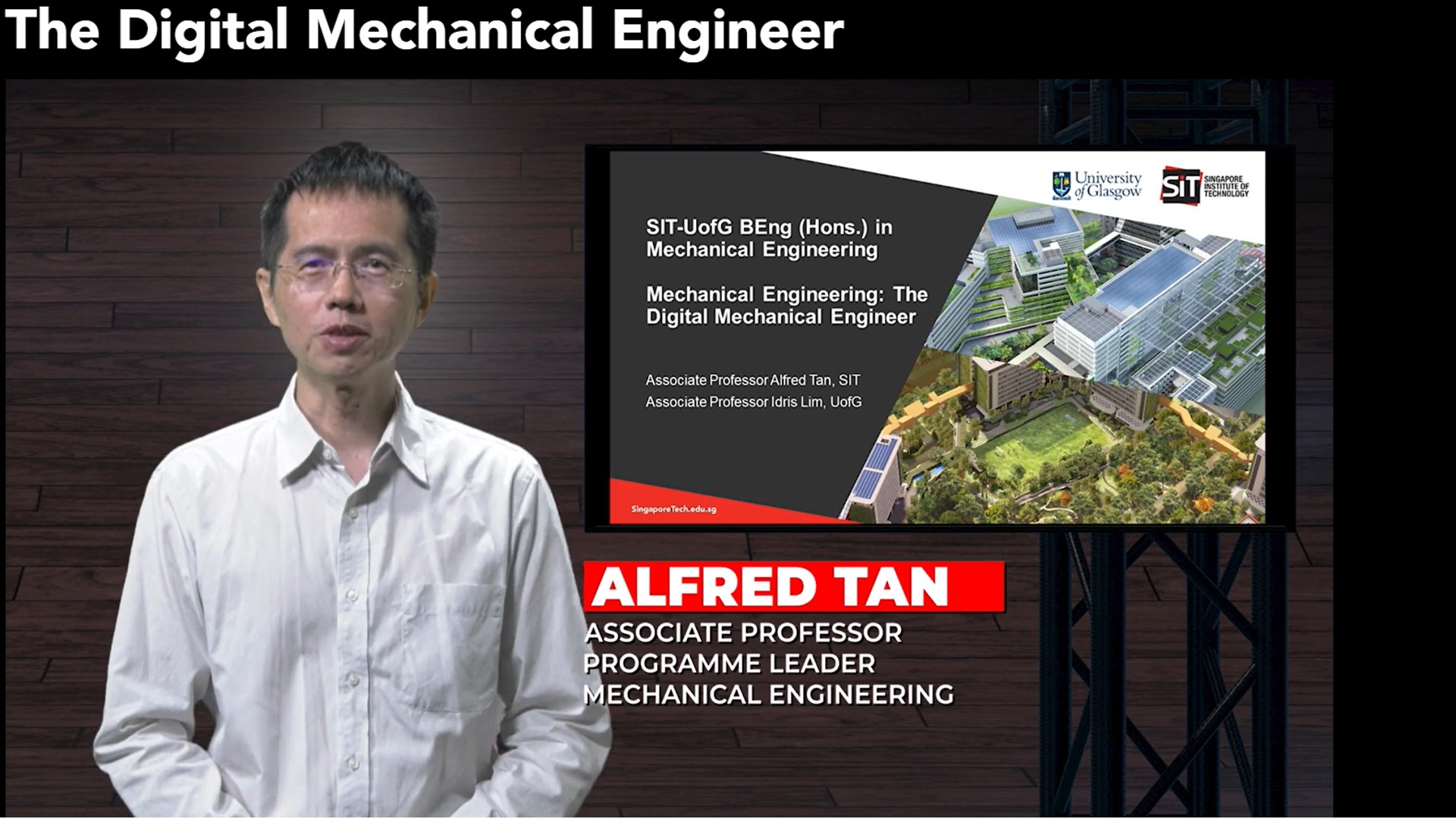
Few people know that mechanical engineering is one of the oldest branches of engineering. Someone unfamiliar with the field might think that a mechanical engineer’s role is similar to a repairman’s job, and that they spend most of their time in a workshop fixing things. But of course, there is more to it than that.
In his talk on ‘The Digital Mechanical Engineer’, A/Prof Alfred Tan, Programme Leader for Mechanical Engineering shared how SIT equips future engineering professionals with advanced technical knowledge and skills for innovative thinking.
Emphasis on Digitalisation
The Bachelor of Engineering with Honours in Mechanical Engineering is a three-year direct honours joint degree programme by SIT and the University of Glasgow (UofG). Students can benefit from the programme’s unique signatures – digitalisation, multidisciplinary, collaborative experience, and its focus areas on smart designs, robotics/automation, and healthcare engineering. The curriculum’s emphasis on digitalisation means that by the time students graduate, they will be well-versed in industrial internet of things (IIoT), data analytics, and digital design. These skills continue to be sought after by many companies in growth sectors.
Helping Students Stand Out
A/Prof Tan also shared the achievements of two students from the programme who used their knowledge and skills to make an impact on the community. In Year 2 of her studies, Isabel Ang received two awards at the ‘IES Innovation Challenge for the Community 2019’ for her innovative tilt table for cerebral palsy treatment. Meanwhile, Hilsann Yong, who is now an engineer at Dyson, created a personal mobility device that easily converts into a trolley. The project was lauded at the 'National Assistive and Rehabilitation Technologies Student Innovation Challenge' in 2019, and Hilsann went on to represent SIT at an international competition in New Zealand.
Overview of the Programme
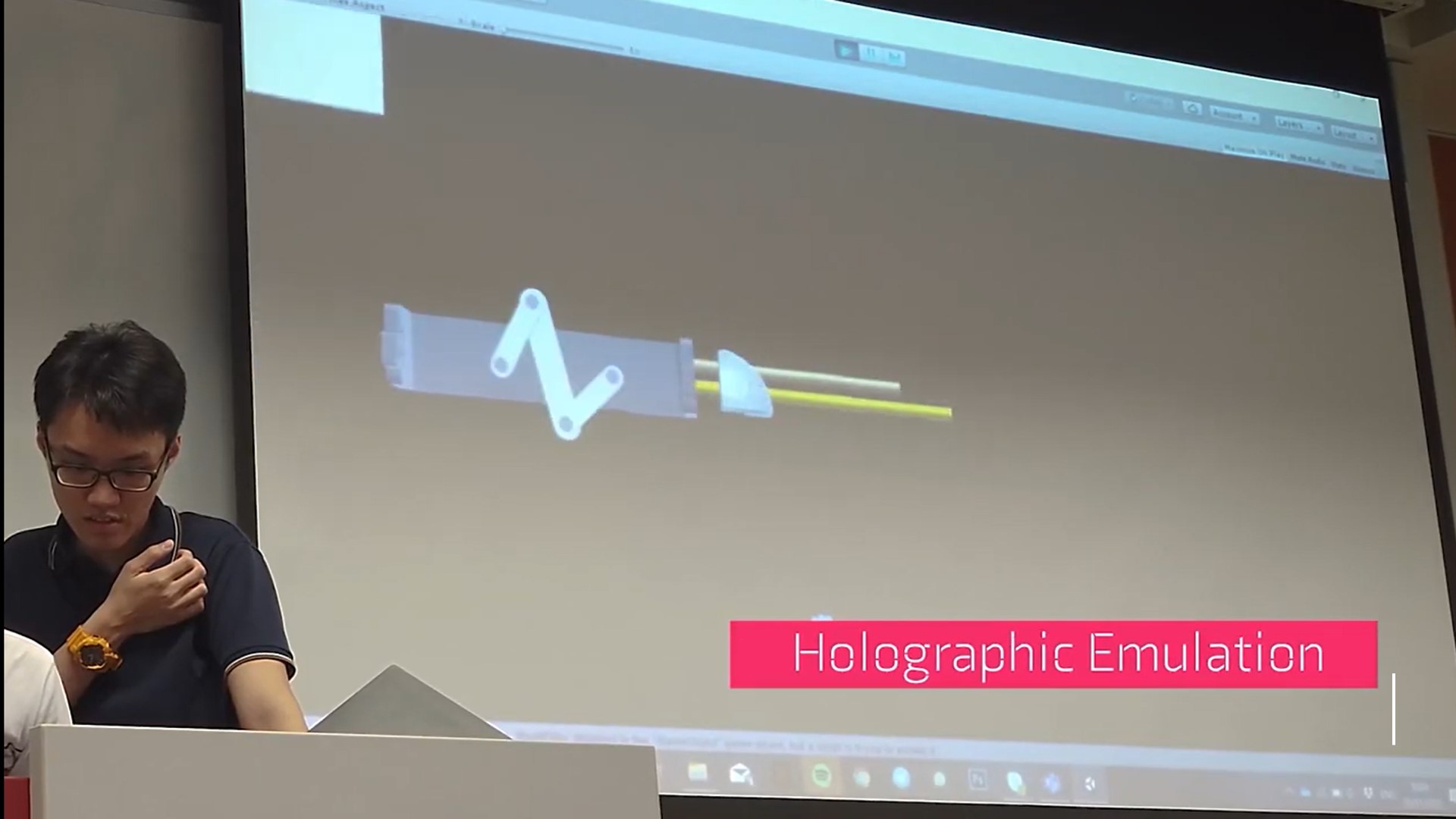
Year 1 students learning about holographic emulation.
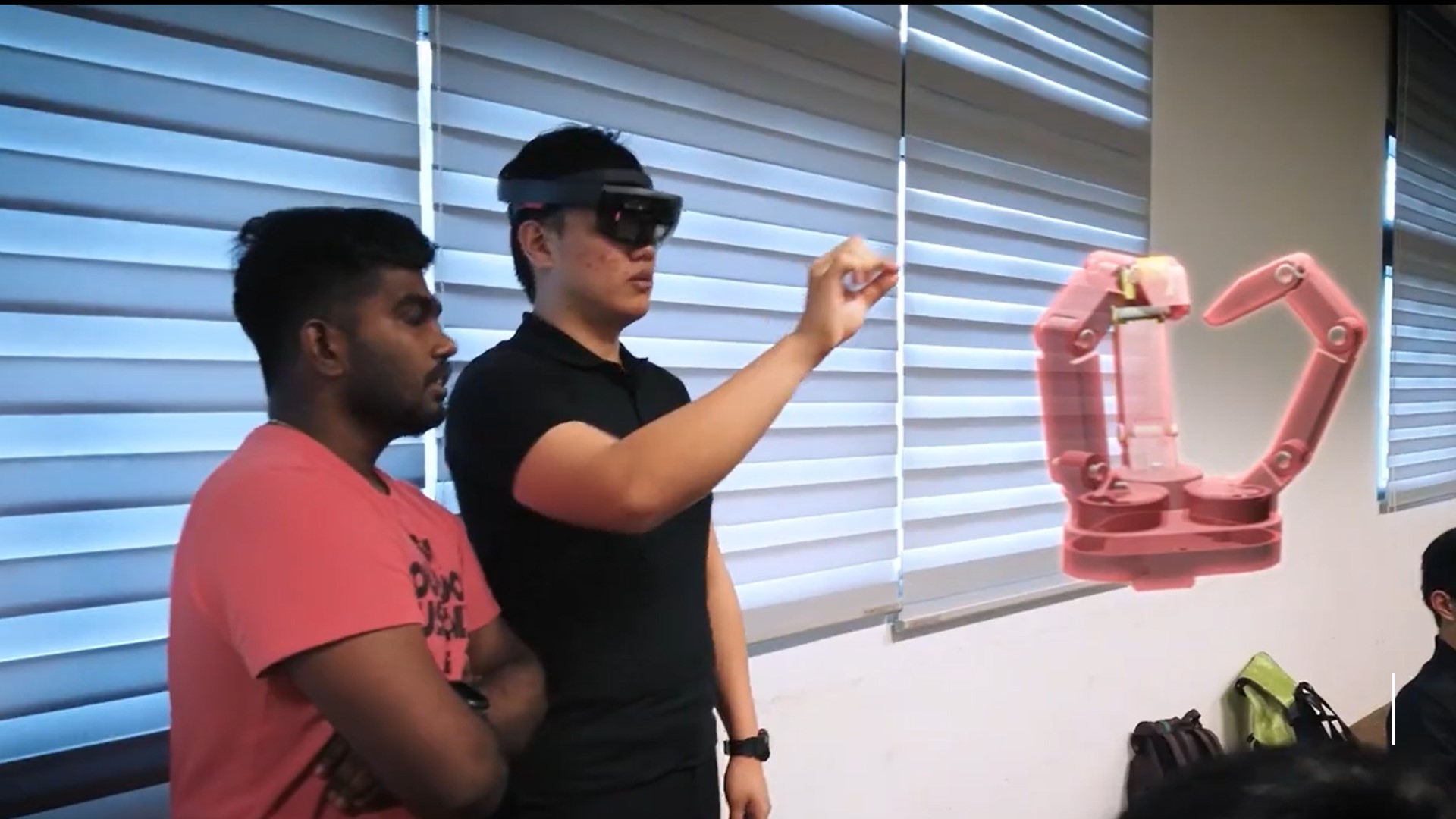
Having a go at holographic testing digital design in class.
There are a total of eight trimesters of study. Students complete two trimesters of foundational study before embarking on their OIP in Glasgow. At UofG, students will take on project work and complete study modules. A/Prof Idris Lim, Director for Mechanical Engineering at the University of Glasgow, explained how students can experience the rich history and culture of Glasgow city as they learn from some of the best academics in the city. Although COVID-19 travel restrictions have affected the OIP, the programme will resume when the opportunity arises.
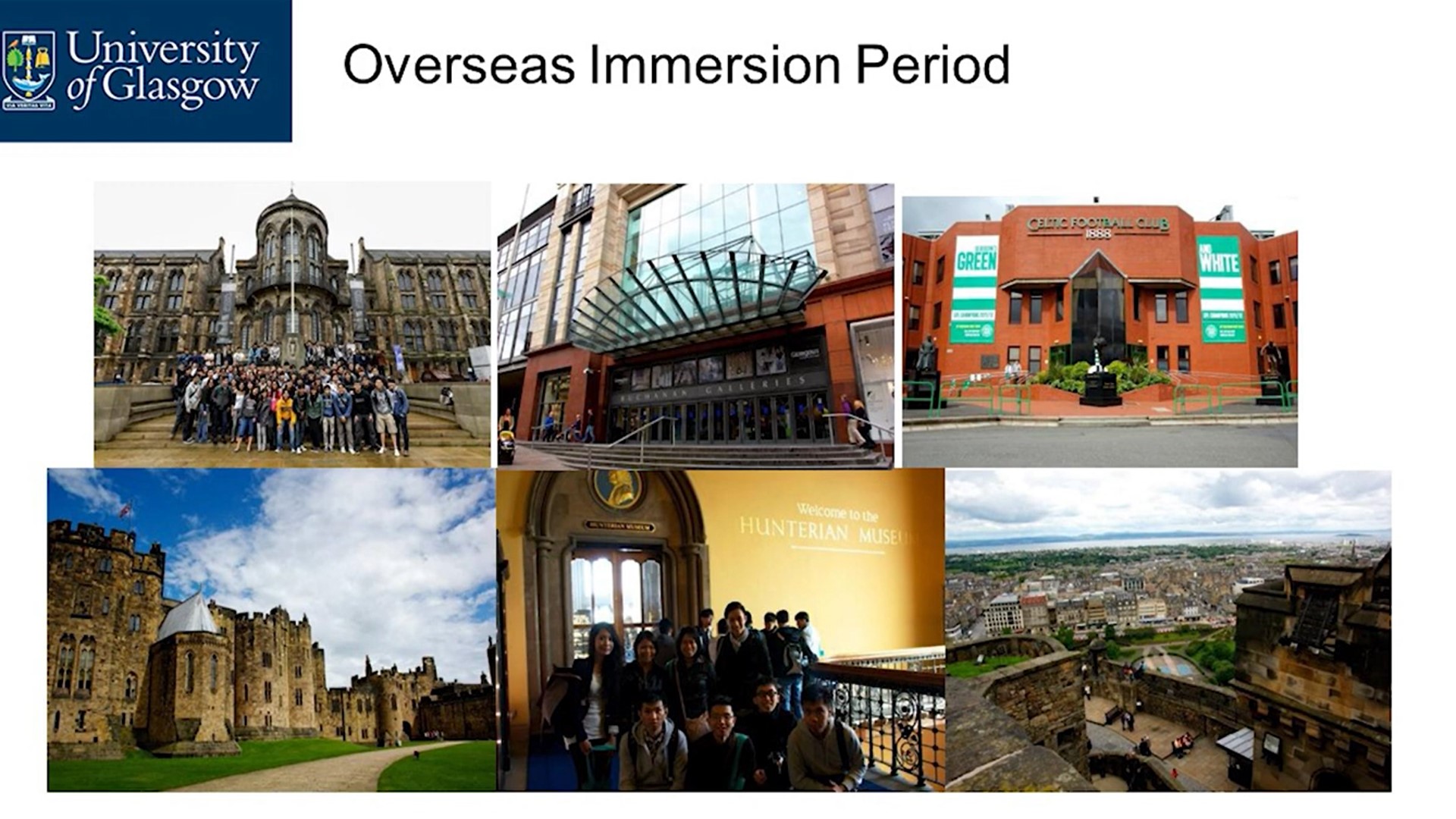
Snapshots of student life at the University of Glasgow.
By Year 2, students would be able to decide whether they wish to specialise in Design or Mechatronics. Then, in their final year, students will embark on their capstone project and work on a real industry problem during their Integrated Work Study Programme (IWSP). Through their IWSP project, students will get an opportunity to demonstrate what they have learnt and apply their problem-solving skills in an impactful way.
Click here to watch the talk.
Article contributed by Kevin Peter Monteiro, Year 3, Criminology and Security

